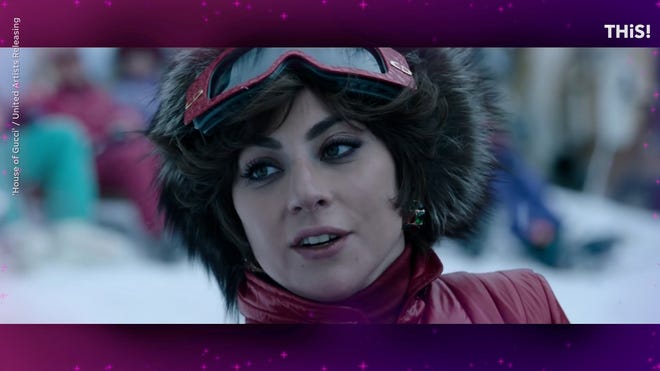
In our daily lives, we may encounter phrases like "I am disabled" or "My child has special needs." And to someone who is not part of the community, this wording may seem synonymous. But it's not.
Most experts and advocates vehemently oppose the term "special needs," and believe we need to eliminate it from our vernacular. Furthermore, they say avoiding the term "disabled" only leads to stigmatization.
For some, the term "special needs" feels offensive.
"I am disabled by society due to my impairment," says Lisette Torres-Gerald, board secretary for the National Coalition for Latinxs with Disabilities. "My needs are not 'special;' they are the same, human needs that everyone else has, and I should be able to fully participate in society just as much as the next person."
It can also be counterproductive.
Researchers from a 2016 study found people who are referred to as having "special needs" are seen more negatively than those referred to as having a disability.
Lawrence Carter-Long went viral with the hashtag #SayTheWord several years ago in an effort to promote the use of "disabled."
Carter-Long, communications director for the Disability Rights Education & Defense Fund, says the word disabled connects members of the community "to each other, our common history, and to the lineage of all those who fought, protested and persisted so that one day we could be proud of disability history too."
Torres-Gerald says there is power in the word disabled.
"I am not ashamed to be disabled; I consider it a difference that allows me to view the world in a different way than other people."
Must-watch:'Best Summer Ever' is a feel-good musical and a big win for disability inclusion
The history of the term 'special needs'
It's not clear where the term "special needs" originated; one theory is "special needs" arose following the launch of the Special Olympics in the 1960s, according to the 2016 study published in "Cognitive Research: Principles and Implications."
The National Center on Disability and Journalism says special needs "was popularized in the U.S. in the early 20th century during a push for special needs education to serve people with all kinds of disabilities."
Data shows it permeated the public consciousness over the last few decades. Special needs has grown increasingly popular in books the past several decades, while "handicapped" has decreased significantly.
The term is not a legal one – in fact, it only appears about a dozen times across thousands of pages of laws in the U.S. "Never once are children with disabilities or adults with disabilities referred to as children with special needs or adults with special needs," according to the study. "Rather, individuals with disabilities are always referred to in U.S. law as individuals with disabilities."
Jamie Davis Smith, whose daughter is disabled, points out that people with disabilities are entitled to certain rights as a result – from movie theater seating to Medicaid and more.
"Special needs" doesn't offer the same legal protections.
Listen:Dad of triplets launches podcast about autism to help parents find hope
The term 'special needs' is harmful, experts say
"Special needs" has actually become a "dysphemism" – a derogatory term as opposed to a softer one. Like saying "loony bin" instead of "mental hospital."
Quinn West, a disabled artist living in Chicago, grew up going to a mainstream school and felt the impact of the term "special needs."
"Abled people assume that saying 'special' means a 'good special' when disabled kids who went through the system know that kids would use 'special' as an insult," West says.
West says it makes those who are disabled sound like an extra burden, when that's not the case; "I’m deaf, so like everyone else I need communication. That need isn’t anything extraordinary. It’s the same need for human connection, but I just need an accommodation to do so."
Nila Morton, a 22-year old college student, disabled advocate and model in South Carolina, says that words matter. "It’s OK to say 'disabled' and 'disability,'" Morton says. "Those words aren’t bad. The only reason they are seen as bad is because of the able-normative view of disability."
In case you missed:Sia's 'Music' angers the autism community: 'I don't even know where to start'
What parents say about their children with disabilities
Parents may be more comfortable using "special needs." But their children most likely won't take that with them into adulthood.
"While it is used by parents of disabled kids, as those kids become young adults, they do not use this term," Lauren Appelbaum, vice president of communications at RespectAbility says.
Smith doesn't want her disabled daughter Claire to have "special" treatment. Her daughter simply requires extra support. "I think it's really important that non-disabled people, people who don't know people with disabilities, understand that I'm not really asking for anything that special for my daughter, I'm just asking that she be able to participate in her community, in life, on an equal basis as my other kids," she says.
Parents who opt to use the term are not coming from a bad place.
"Parents, like all of us, are prone to adopt whatever is common in the ecosystem that surrounds them," Carter-Long says. "And since most folks aren’t born into disabled families, it’s no surprise that they just adopt whatever their friends and neighbors do. Even if it’s unintentionally bigoted. Even if it harms their kids in ways they don’t quite understand."
What you should be saying instead
The National Center on Disability and Journalism recommends never using it: "Our advice: avoid the term 'special needs.' Disabled is acceptable in most contexts, but we advise asking the person to whom you’re referring what they prefer."
Sonja Sharp, a metro reporter with the Los Angeles Times, prefers identity-first language: "disabled" over "person with disabilities." "It's cleaner, it's simpler, and it's more reflective of my reality," Sharp says. "The law defines me as disabled."
For Sharp, disability is at the core of her identity.
"Every significant experience – school, friendships, puberty, sex, career, marriage, motherhood – has been shaped by this body, made different because of this body," she says. "I am disabled the way I am Jewish – intrinsic and inseparable from me."
Interesting:How 'Everything's Gonna Be Okay' avoids Hollywood's (and Sia's) pitfalls portraying autism









